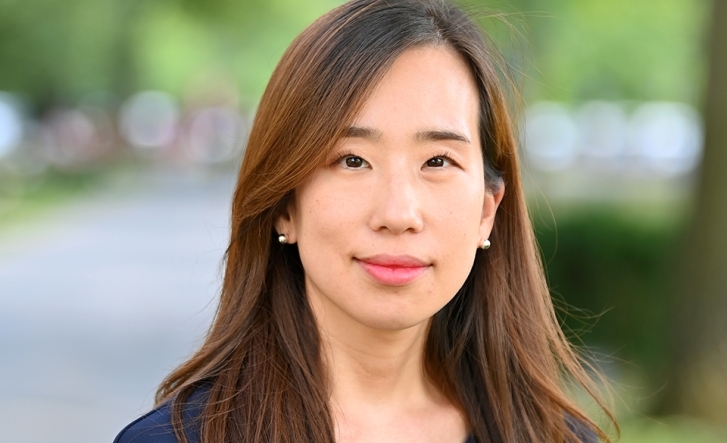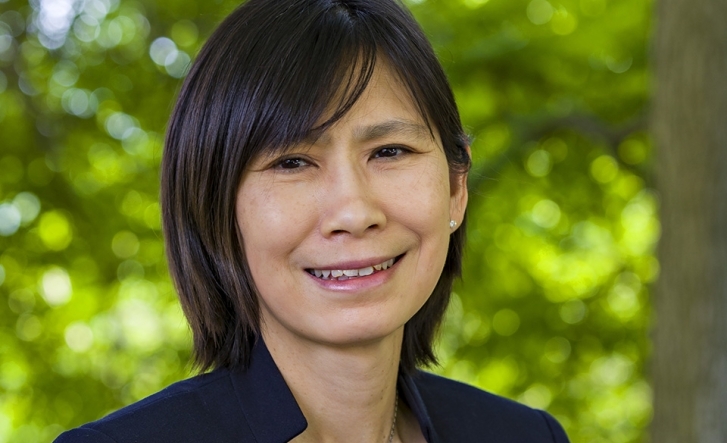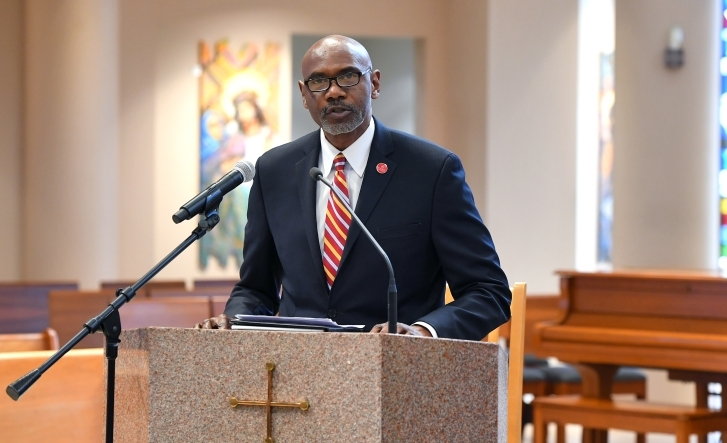Ronald Fechter, Ph.D.

Motivated by Pope John Paul II, Computer Science Chair Looks to Inspire Others
When Pope John Paul II visited New York in 1979, he challenged Americans to live their ideals. Fortunately for St. John’s University, Ronald Fechter, Ph.D., Associate Professor and Chair, Computer Science, Mathematics and Science, happily accepted the Pontiff’s challenge.
At the time, Dr. Fechter was teaching mathematics at Lower East Side Preparatory High School in Manhattan. After hearing the Pope speak, he decided to shift gears and focus on becoming a college professor.
“It was a very exciting time for me,” said Dr. Fechter. “The Pope spoke about idealism, and the moral obligation to fulfill one’s own potential, in a way that resonated with people. Now, here we are, more than 30 years later, and I’m still striving to live my ideals and hopefully inspire students to do the same. His words were very galvanizing for me.”
Dr. Fechter came to St. John’s after replying to a newspaper ad that his wife had circled. At the University, the challenges and rewards of college teaching quickly impressed him. “Back then, we used to teach five courses each semester,” he said. “It was rigorous, but I got a lot of great experience early on.”
As the world’s dependency on computers has grown, so has Dr. Fechter’s department. “We were one of the first universities to offer computer science as a major,” he said. “In the 1990s, we launched Information Technology and Networking and Telecommunications.” Since he became Chair, two new majors have been added: Computer Security Systems, in 2007, and
Healthcare Informatics, in 2011.
“Healthcare Informatics is huge,” he explained. “It can play a critical role across the entire treatment process, because doctors, specialists, hospitals and pharmacists will be able to view your entire medical history.” Better access to data allows healthcare professionals to choose more effective treatments — and to track their patients’ response to medications. “Someday,” he said, “our healthcare informatics students will be able to save lives.”
The Information Age also has seen the rise of cyberterrorism and more sophisticated approaches to white-collar crime. With rising interest in computer security systems, Dr Fechter recruited John Otero to help expand St. John’s program. Otero was the commanding officer of the New York City Police Department’s Computer Crimes Squad.
“With such an impressive résumé, John could work anywhere in the world,” said Dr. Fechter. “But he saw this as an opportunity to seed the world with good guys — computer security professionals who would be guided by the highest ethical standards. So doing, he’s following the Vincentian mission.”
Now in his third three-year term as the department’s Chair, Dr. Fechter eagerly anticipates the addition of a new master’s program: Data Mining and Predictive Analytics. “Businesses today are inundated with data,” he explained. “With enough statistical knowledge, you can analyze trends and predict customer behavior and patterns. You can even use this information in medical research as a way to track the effectiveness of treatments.”
Dr. Fechter believes St. John’s alumni are especially well-prepared to tackle the challenges of the real world thanks to the three required philosophy courses each student takes. “If you go on a job interview,” he said, “they’re going to want to see if you can talk about the world and the ideas that drive it.”
“There are a number of great computer science schools,” he concluded. “St. John’s students are multidimensional, so many of them become the bosses of students who went elsewhere. It’s one of the reasons our philosophy is to produce a graduate who is strong in more than one area. The potential here is huge.”



